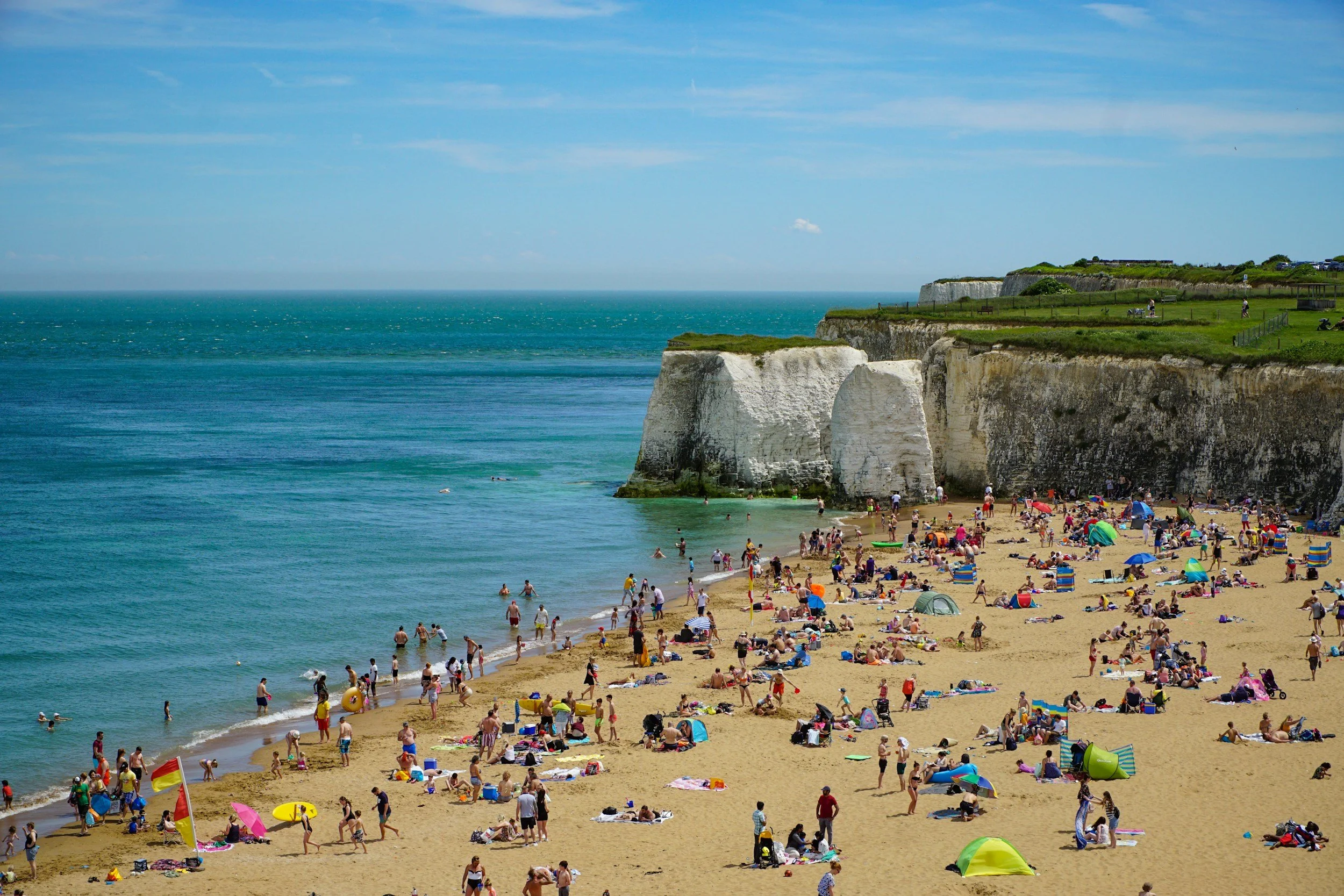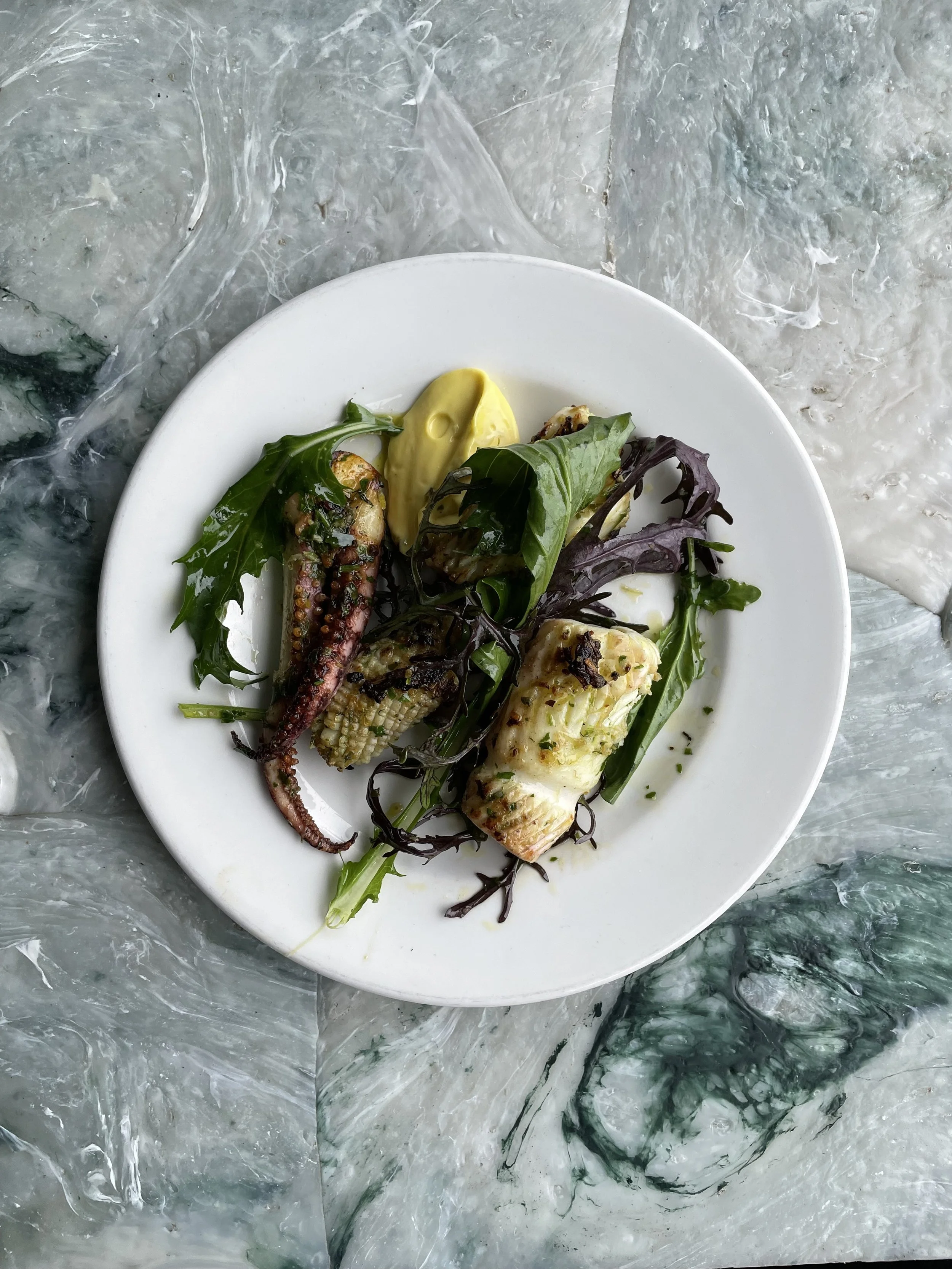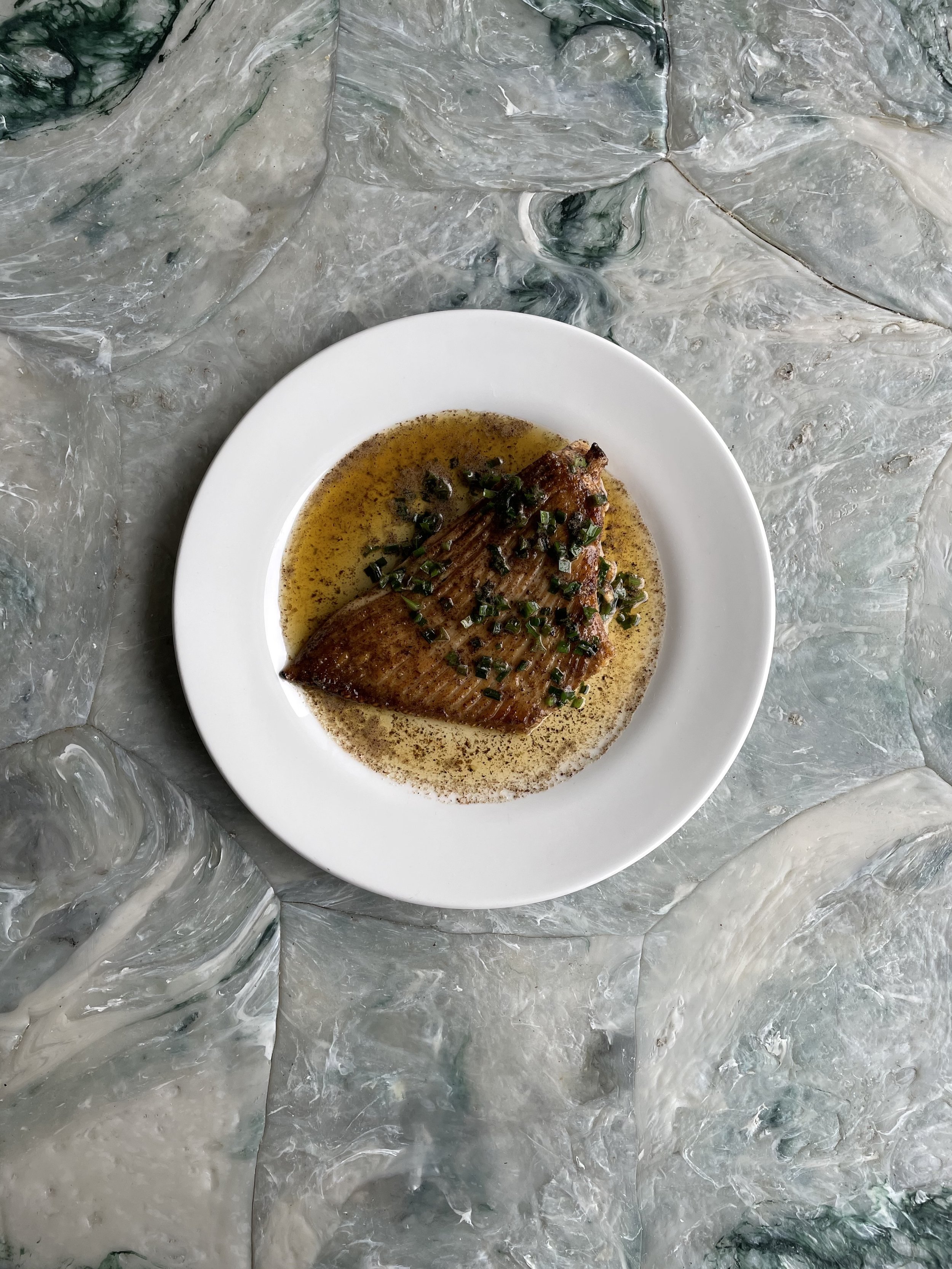Visit “Shoreditch-on-Sea” for a wildly British seafood occasion
Angela’s in Margate is setting new standards for the British seaside, with locally and ethically-caught fish, a focus on supply chains and composting its food only to grow it again, deservedly winning the popular spot a Michelin green star in 2021.
For Londoners, one by-product of the pandemic was a revival of the British seaside. For better or worse, the likes of Whitstable, Hastings and further afield in Dorset received an influx of city dwellers. Herds of young people found themselves seeking greener, airier and more commodious housing alternatives to that of the subdued capital, which apart from a connection to the wifi, found itself with little to offer.
One town enjoying a recent awakening is Margate. By no means a new visiting destination, Margate was one of the first British seaside resorts, attracting fun-seeking holiday goers - particularly from the smog-infected London - in the Georgian and Victorian eras. This dwindled in the late twentieth century when cheap package holidays tempted Britons away to more exotic and seemingly exciting pastures across the pond, leaving the beach town out in the cold.
Today, partly stemming from the pandemic exodus but also from the opening of the Turner Contemporary art gallery a decade before in 2011, Margate has re-earned its name on the map as a charming and cultural hotspot. Several trendy, modern bars and cafes have popped up all over its seafront boulevard and quaint seaside passageways, giving way to its playful Shoreditch-on-sea nickname.
Turning the tide on seafood dining
Angela’s is a restaurant encapsulating Margate’s newfound East London vibe. A rustic, industrial setting with intimate, candle-lit tables might stir up some nostalgia if you’re used to dining out in Hackney or Dalston. Yet unlike the dusty fog of the city the backdrop here is a taste and smell of salty sea air and sounds of flocks of seagulls hungrily chirping away - a freshness similar to no London spot.
The restaurant has one central philosophy: minimising its impact on the planet and its people. There’s no meat on the menu – it causes too much carbon emissions, points out head chef Rob Cooper – with the star(fish) of the show, of course, the seafood. Its environmental focus means it looks at everything from transforming all food waste into compost to produce more organic ingredients, to ethically catching fish by partnering with local suppliers with strong sustainability credentials.
Angela’s is also working to make its entire supply chain (that’s everything including its suppliers of food and drink produce and their transportation) plastic free – even creating the dining tables from compressed recycled plastic bags – which, given we’re on track for more plastic in the oceans than fish by 2050, is important. The owners admit they haven’t reached zero plastic yet, but are doing all they can to be better.
Local in taste, world-class in experience
Angela’s has a personal feel, with an intimate half a dozen tables at the front alongside a small extra room at the back, sharing plates which are served as ready and friendly staff pleased to talk you through the recommendations of the day. The menu goes beyond a seasonal focus to a daily one, with the blackboard updated depending on the fortune of the fisherman that morning. The day I was there it seemed a lucky one, with options plentiful and interesting. The short menu included poached oysters, monkfish, skate, bass, mussels, prawns, grilled mackerel and scallops to peruse over - other days turbot, hake and ray make frequent appearances too.
What may be humble in size is certainly not in taste. The dishes we went for included succulent scallops, cauliflower and artichoke sautéed in a herby, buttery sauce, smoked prawns paired with a creamy aioli, and monkfish bedded in a juicy, fragrant crab bisque. Each dish felt effortlessly whisked together into lively, heavenly combinations of flavours and textures, so it was quickly no surprise that Angela’s is known as one of the best seafood spots in the country.
When it comes to the wine list, it’s clear the owners, husband and wife team Lee Coad and Charlotte Forsdike, know what they are doing, having also opened ‘little sister’ seafood wine bar Dory down the road and securing the same magnetic appeal as its older sibling. The bottles at both sites are focused on English grapes, which they found fittingly accompany the British seafood experience, alongside a curated selection of coastal organic, biodynamic and low-intervention European wines.
To top it all off, we finished with a flourless chocolate tart - an easy choice having caught my eye on arrival - and as somewhat of a chocolate pudding expert, its gooey rich consistency did not disappoint. Margate may not be wild blue yonder for many, but there are several good reasons to visit the cheerful coastal town that’s firmly on the up. Whether it's the new hip bars or boutique galleries, the breezy air alongside a picturesque seascape, or the tantalising array of eateries on offer that pique your interest, the fact some of the best food in the area is created with a conscience may just be enough to sway you too.





